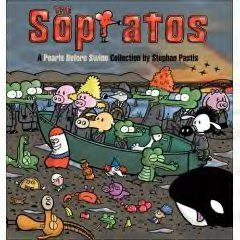
Editor: Wally Lamb
Type: Nonfiction/Memoir
Shepnerd Rating: 5 Stars
Wow. I dare you to read this book and not be changed. In a world where even Christians sometimes lack compassion and argue for longer sentences, or say "well, they are drug addicts, prison is the place for them" - this book is a much needed eye opener. The women in these essays do not deny their crimes, nor to they blame abusive childhoods, battering husbands, or drug addiction for their incarceration (although there is plenty of pain to go around). Yet seeing how the women come from and relate to - drugs, gangs, alcoholism, abuse, molestation and downright no common sense -- shows how very little faith and understanding society gives them.
I was reading this book when Michael Vick's 23 month sentence for dog killing was handed down and listening to commentators talk about the "stiff sentence". I just shook my head because I was reading an essay from a 18 year old girl sentenced to 15 years for accidentally killing a man who was raping her. SHE wasn't complaining about the length of her sentence, but missing the normal things of adolescence.
One inmate sums her faith experience up extremely well - on her first terror-filled night in prison serving 4 years for theft - she prays "Dear God, I know you were with me in the courthouse today, and I know you are with me now. Thank you for your blessings even though I am blind to them at this moment." If we could all be so honest with God.
Its a moving book that reminds us that prisoners are people, and we are not so different than they are. I conclude with a discovery one inmate shares which sums up this book nicely:
"Everyone in prison has a story; a need to be listened to, and a longing to be loved."















